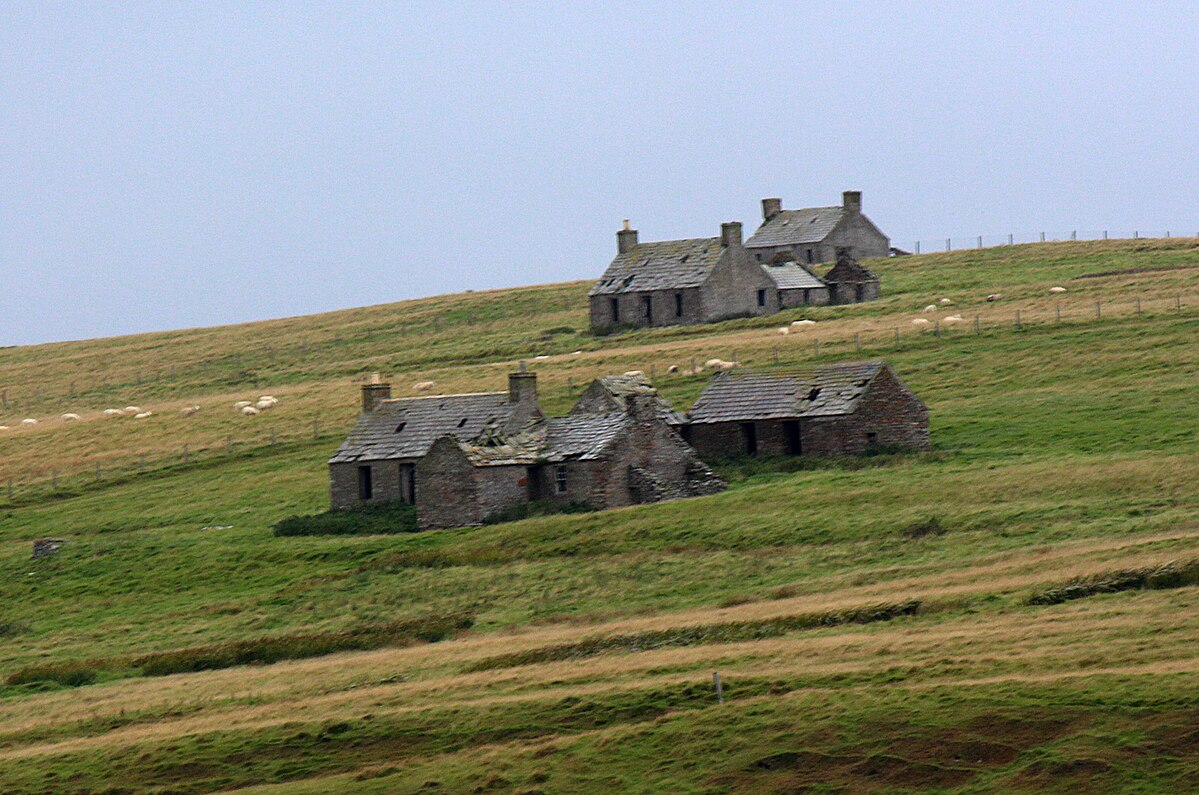Winters could be tough when the boats could not get to sea or across the firth for fresh supplies. Yet, as a child, I don't remember ever feeling hungry or cold, so I guess the hardy island folk were always well prepared.
My mother baked a lot, pancakes, bannocks, and sponges. Biscuits were a treat. Traditional sweets were a treat, but she often made tablet.
We had a plentiful supply of chickens, salt herring, hard fish, and tinned food, and I imagine the shop was well stocked up in preparation for inclement weather.
The coal boat came once a year so the coal had to be rationed to last till the next coal boat came.
In January 1955, we had the worst Snowstorm I ever remember.
'There's going to be a blizzard.' my father said, and we watched as he brought in extra drinking water and coal, and a large shovel. I didn't worry over much. whatever happened my parent were there and they would keep me safe.
The following morning, I woke up to a silent darkness. The house was encased in snow. My father was already tunnelling his way to the byre to tend the animals. He also tunnelled a path upwards, and once the blue sky could be seen, we children, decked out in wellingtons, hats coats and scarves, clambered out. Only the top of the roof and the chimneys were visible. The large drifts made excellent sledge slopes. We could tunnel in and build caves, then fall back indoors with freezing feet and fingers, desperate to warm up and get outside again. The fact that our snow caves could collapse and bury us never entered our heads. When we ran out of water, my father brought in tin pails full of snow and put it on the stove to melt.
Several of our sheep wandered over the cliff edge and fell down, sinking in the soft snow. My father tied a rope around his middle and rescued them. Trapped in their freezing bubble, and no doubt kept insolated by thick woolly coats, all had survived.
Unfortunately for us children, being snowed in did not last long. I well remember the disappointment when I woke up one morning and the snow had almost disappeared.
We perhaps fared better than many of our mainland neighbours, since those who relied on electricity had to do without. We relied on bottled gas and solid fuel and still had warmth and light.
1953 brought a gale and floods all over Britain. Our sturdy wee houses fared better than many mainland dwellings. It was reported that 300 lives were lost in the UK. We didn't go to bed that night, but sat up and listened as the wind railed and battered our cottage. Strangely the wireless did not lose a connection and continued to report the progress of the storm until morning. I understand a great wall of water hit the north end of Stroma where the land was flatter, sending the coastal dwellers running up the rise while the sea poured into their houses.
Next day, many households woke up to discover their wooden porches had gone. Many roofs had been damaged, ours included.
1955 was Scotland's sunniest year on record. After a cold winter and a cold June, July and August were the hottest since 1911, giving a memorable summer. Not only was it hot on Stroma, but dry. Most of the wells dried up, leaving only a spring called 'the Stroop,' which supplied a constant source of drinking water, but even it was eventually reduced to a trickle.
The big drums behind our house which stored rainwater also ran dry and my father carted containers of water from a pond near the lighthouse. Since the animals also needed to drink, it must have been hard days for the adults.


No comments:
Post a Comment